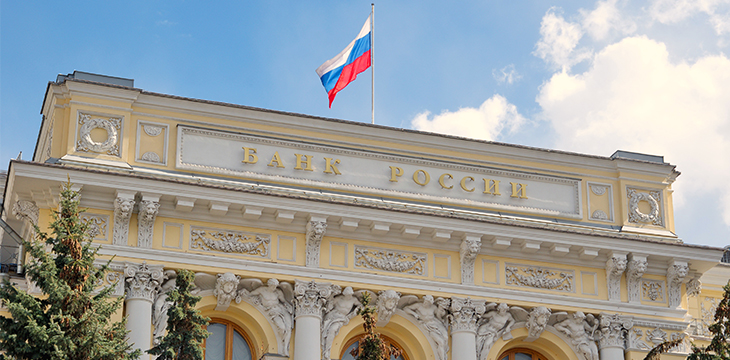|
Getting your Trinity Audio player ready...
|
At a time when digital currency companies are increasingly listing on global exchanges, Russia is making moves to prevent its local stock exchanges from getting in on the wave. The Bank of Russia recently sent a letter to stock exchanges urging them to stay away from companies that deal in digital currency-related services to protect investors.
Coinbase (NASDAQ: COIN) debuted on Nasdaq this year, becoming the biggest beacon of a trend that’s gone towards digital currency companies infiltrating the stock market. Others like TAAL Distributed Information Technologies Inc. (CSE:TAAL | FWB:9SQ1 | OTC: TAALF) have been trading for a while on the Canadian Securities Exchange. There are also those that have indicated that they are looking to list in the not-so-distant future, including Bakkt, Apifiny and Gemini.
In Russia, there will be no such listing. The Bank of Russia recently sent an advisory letter to exchanges in the country, cautioning them against such listings. It stated that stock exchanges should not list companies whose businesses rely on digital currency prices, whether local or foreign.
Such business includes digital currency-tracking indexes, derivatives and funds. Asset managers in Russia must also exclude such instruments in their mutual funds.
The restrictions are all geared towards protecting the investors, the bank sought to clarify. “The Bank of Russia’s recommendations aim at a preventive measure — they are designed to prevent a mass investor adoption of such instruments,” it stated, adding that such instruments should not be availed to non-accredited investors.
The central bank did however exempt companies dealing in central bank digital currencies or “other authorized digital assets issued in Russia.”
Among the reasons that the bank listed for blocking these companies is the high volatility associated with digital currencies. Low liquidity in the market, an ‘opaque price discovery’ and regulation-related risks were also among its reasons.
It added, “The purchase of financial instruments linked to them entails increased risks of losses for people who do not have sufficient experience and knowledge.”
The new stipulation will make it even harder for Russian companies to offer digital currency services. As it stands, these firms are already facing barriers, despite their clients seeking digital currencies out. Russia’s top digital bank Tinkoff stated in June that its clients have been demanding for digital currency services, but the central bank has gotten in the way.
Watch: CoinGeek Zurich panel, Digital Technology and the Future of Banking & Financial Services

 03-02-2026
03-02-2026 




